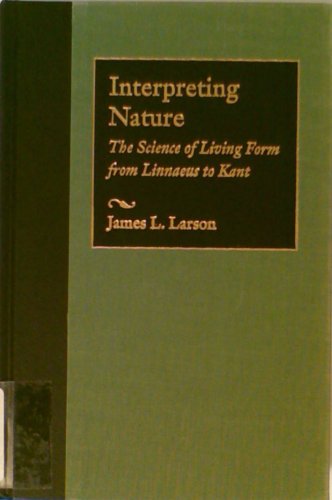Where and why did early-modern European scientists make the break from classificatory and teleological modes of thinking to more challenging approaches? How did Germanic research in natural history contribute to and depart from the more familiar work of the British and French? James Larson draws on 20 years of research to offer a contribution to our understanding of the Enlightenment in northern Europe during a period of critical change in the history of science. At the mid-18th century three great men dominated the life sciences in Europe: Linneaeus, Button, and von Haller. Each disliked and distrusted the others, but their scientific work shared a common feature: a commitment to physical science combined with a residual belief in a teleological natural order. Although the next generation seemed to continue the lines of research laid down by the triumvirate, Larson's analysis reveals that their research undermined the teleological explanations of the past not so much by denying them as by emptying them of explanatory force.
Larson takes his title from Diderot's "Pensees sur l'interpretation de la nature", without assuming the "potential development and social consequences that Diderot took for granted." After searching the intentions and achievements of two generations of natural historians, Larson re-examines the 18th-century European attempt "to conceive living nature in purely physical terms, as a unified and self-contained system. " He concludes with a refined view of Emmanuel Kant's Critique of Judgment.
- ISBN10 0801848407
- ISBN13 9780801848407
- Publish Date 1 October 1994
- Publish Status Out of Stock
- Out of Print 12 March 1998
- Publish Country US
- Imprint Johns Hopkins University Press
- Format Hardcover
- Pages 256
- Language English
